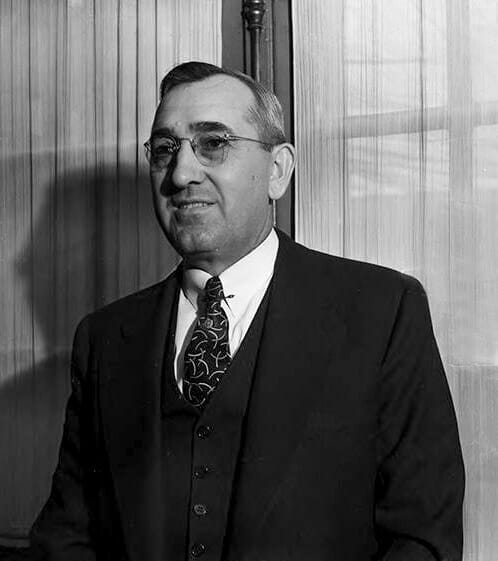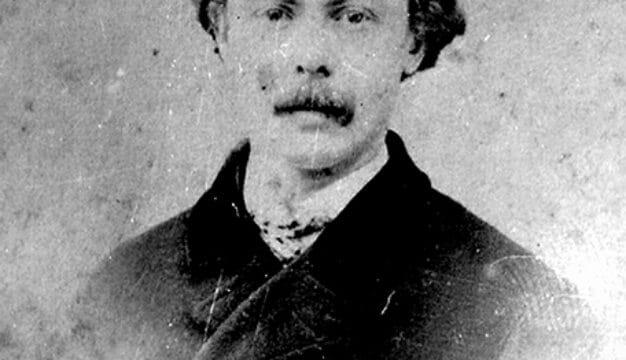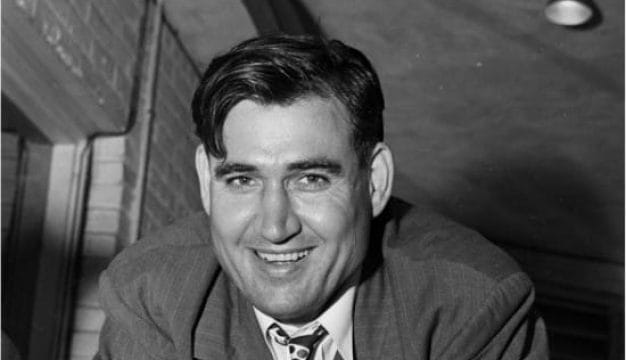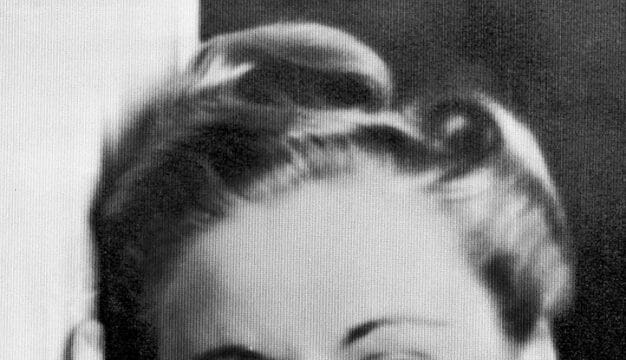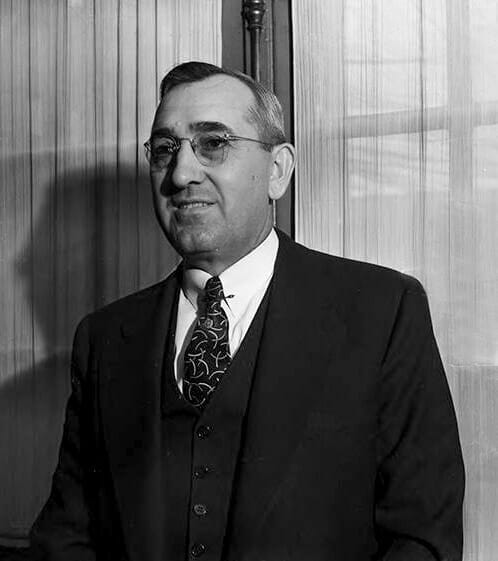Zadoc Lorenzo Weatherford
Zadoc Lorenzo Weatherford (1888-1983) was a Democratic U.S. Representative from Alabama’s Seventh Congressional District who briefly filled the seat that was left vacant by the sudden death of William B. Bankhead. Earlier in his career, Weatherford was a general medical practitioner and served during World War I in the U.S. Army as a battalion surgeon in France. After being discharged, Weatherford served in various medical positions and in local and state politics and again after his term in the 76th Congress.
Weatherford was born on a farm in Marion County on February 4, 1888, to Leander Jackson Weatherford, a farmer, and Lucinda Adelia Ritter; he was one of their 10 children. After his mother died, his father married Mary Puckett Nicholson and they had an additional 8 children. Weatherford’s draft card lists the small rural community of Bexar as his place of birth. He graduated from the University of Tennessee at Memphis in 1914 with a medical degree and for the next two years served as an intern at Saint Joseph’s Hospital in Memphis. In 1916, he moved to Red Bay, Franklin County, on the Mississippi state line and established a medical practice. He married Ollie F. Barnes of Marion County on June 30, 1916.
In June 1917, Weatherford registered for the draft, enlisted that August, and was assigned to the 326th Infantry Regiment that trained at Camp Gordon, near Atlanta, Georgia. He and his fellow soldiers arrived at the French port of Le Havre in spring 1918. This regiment was assigned to the Eighty-second Infantry Division and contributed significantly to the division’s first offensive operation in August. Near Seicheprey, two of its units on a trench raid crossed into the German lines, captured machine guns, gathered intelligence, and inflicted numerous casualties. During the September 12-15 St. Mihiel offensive, the Eighty-second was positioned near Pont-a-Mousson and with their division endured many hardships, including a nightlong battle with artillery and attacked with mustard gas. Toward the end of September, the Eighty-second was repositioned near Clermont-en-Argonne, east of Verdun, and then moved north, taking part in the largest offensive ever fought so far by the U.S. Army, the Meuse-Argonne Offensive. During the second of the three-phase offensive, in October in the area around St. Juvin due east of Reims, the 326th endured machine gun fire and artillery and gas attacks for several weeks. Alabama’s 167th Infantry Regiment also took part in the offensive that helped prompt the large-scale German retreat and their offer of an armistice in November.
Whereas many troops were soon sent home, Weatherford and the rest of the Eighty-second Division remained five more months and would actively serve the longest and without relief of all of the American Expeditionary Forces. The 326th was quarantined and did not return until May 1919, according to the Eighty-second’s official history, but Weatherford suffered a humerus fracture and returned to the United States likely in March 1919 and was discharged in October 1920. He was awarded a Purple Heart and went on to help fellow veterans as the subdistrict medical officer at the U.S. Veterans’ Bureau in Montgomery, Montgomery County. In 1924, Weatherford returned to Red Bay and resumed his medical practice and became involved in banking and farming in areas of Alabama and Mississippi. He served as vice chairman of the Franklin County Democratic Committee from 1933 until 1937 and as president of the Bank of Red Bay beginning in 1938.
Weatherford was elected to the Alabama State Senate in 1939 and served until 1944. He was elected to the U.S. Congress in November 1940 to fill the vacancy created by the death of William B. Bankhead and served in Congress from November 5 until January 3, 1941, the end of Bankhead’s term in the 76th Congress. During his short time in office, there were only two votes held on actual legislation. Two other votes were on a conference report and a resolution to adjourn. Weatherford did not participate in a vote on Senate amendments to the Walter-Logan Bill but did vote against a bill to override Pres. Franklin D Roosevelt’s veto of the bill. It was an effort to strengthen judicial oversight of federal agencies and boards in light of the growth of the executive branch in response to the Great Depression. Weatherford was one of only two Alabama congressmen who voted against the bill to override Roosevelt’s veto. Most of the delegation declined to vote and the override effort failed. Weatherford did not wish to run for a full term and the open seat was won by Walter William Bankhead, nephew of William Bankhead. He stepped down February 1, 1941, and Carter Manasco won the seat in a special election.
Weatherford left Washington D.C. for Alabama and was elected mayor of Red Bay, serving from 1945 until 1948. He stepped down as president of the Bank of Red Bay in 1970. Ollie F. Barnes Weatherford died on October 16, 1975, and Zadoc married Pearl Williams on February 22, 1976. Weatherford died in Red Bay on May 21, 1983, and was buried in Red Bay Cemetery. He belonged to several fraternal organizations and was a member of the American Legion Post No. 120.
